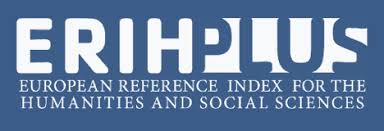№1, 2019
ANALYSIS OF INFORMATICS TEACHING AT SECONDARY SCHOOLS
The article analyzes the content of the subject of informatics taught at schools in the Republic of Azerbaijan and other countries. In terms of the use of ICT, the aims and objectives of the subject of informatics in the education systems in developed countries are studied. The essence of several implementations to be done for the development of informatics teaching at secondary schools in the Republic of Azerbaijan is emphasized (pp.44-50).
Keywords:content of informatics, informatics teaching, personnel training, applied programs teaching.
References
- Guerra V., Kuhnt B., Blöchliger I. Informatics at school-Worldwide. An international exploratory study about informatics as a subject at different school levels, 2012, https://www.researchgate.net/publication/275031384_Informatics_at_school_-_Worldwide_def
- Informatics education: Europe cannot afford to miss the boat. Report of the joint Informatics Europe & ACM Europe Working Group on Informatics Education. April, 2013, http://www.informatics-europe.org/images/documents/informatics-education-acm-ie.pdf
- Curriculum Guidelines for Undergraduate Degree Programs in Software Engineering. A Volume of the Computing Curricula Series. Software Engineering, 2004, http://sites.computer.org/ccse/SE2004Volume.pdf
- Computing our future Computer programming and coding Priorities, school curricula and initiatives across Europe. European Schoolnet. October, 2015, http://www.eun.org/documents/411753/817341/Computing+our+future_final_2015.pdf/d3780a64-1081-4488-8549-6033200e3c03
- “Azərbaycan Respublikasında informasiya cəmiyyətinin inkişafına dair Milli Strategiyanın həyata keçirilməsi üzrə 2016-2020-ci illər üçün Dövlət Proqramı”, https://www.president.az/articles/21127
- Azərbaycan Respublikasında telekommunikasiya və informasiya texnologiyalarının inkişafına dair Strateji Yol Xəritəsi, http://www.president.az/articles/22382
- Balanskat A., Engelhardt K. Computing our Future: Computer programming and coding - Priorities, school curricula, and initiatives across Europe? European Schoolnet, http://www.eun.org/c/document_library/get_file?uuid=521cb928-6ec4-4a86-b5229d8fd5cf60ce&groupId=43887
- Syslo M.M., Kwiatkowska A.B. Introducing a New Computer Science Curriculum for All School Levels in Poland / 8th International Conference on Informatics in Schools: Situation, Evolution, and Perspectives, ISSEP 2015, Ljubljana, Slovenia, September 28 - October 1, 2015, 141-154.
- The Czech Curriculum in Primary and Secondary Schools, http://www.timssandpirls.bc.edu/timss2015/encyclopedia/countries/czech-republic
- The Icelandic national curriculum guide for compulsory schools -with Subjects Areas, https://www.government.is/library/01-Ministries/Ministry-of Education/ Curriculum/adskr_ grsk_ens_2012.pdf
- K–12 Computer Science Framework, Retrieved from, 2016, http://www.k12cs.org
- National Curriculum of Korea, http://www.ncic.kice.re.kr/english.kri.org.inventoryList.do
- Самылкина Н.Н. Изучение информатики в старшей школе. Сравнение требований образовательных стандартов россии и республики корея / Материалы международной научно-практической интернет-конференции “Актуальные проблемы методики обучения информатике в современной школе”, Россия, Москва, МПГУ,16-17 февраля 2016, c.222-228.
- Босова Л.Л. Школьная Информатика в Китае: идеи, которые могут быть нам полезны // Наука-образованию, 2016, №1, с.112-120.
- The national curriculum in England, https://www.gov.uk/government/collections/national-curriculum
- Computer science: A curiculum for schools. Computing at School Working Group endorsed by BCS, Microsoft, Google and Intellect, March 2012, http://www.computingatschool.org.uk
- Захарова Т.Б, Захаров А. С. КиберЛенинка. Информатика как обязательный учебный предмет в системе общего образования // Наука и школа, 2015, №5, с.101-108.
- Хеннер Е. К. Предмет «информатика»: межстрановые сопоставления и перспективы развития // Информатика и образования, 2016, №10, c.18-26.
- Ümumtəhsil məktəblərinin 2017-2018-ci dərs ilinə aid tədris planlarının təsdiqi haqqında Azərbaycan Respublikası təhsil nazirinin əmri, http://www.edu.gov.az/az/page/303/14172
- Azərbaycan Respublikası Təhsil Nazirliyinin Azərbaycan Respublikası Təhsil Problemləri İnstitutu. Azərbaycan Respublikasının ümumtəhsil məktəbləri üçün informatika fənni üzrə təhsil proqramı (kurikulumu) (I-XI siniflər), http://www.informatik.az/rasmi/Informatika-kurikulum-1-11.pdf
- Ayda-zadə K.R., Əliyeva A.E. İnformatika fənninin ali məktəblərdə tədrisi problemlərinin təhlili // AMEA-nın Xəbərləri? 2018, №3, s.78-84.
- Кучай А.В. Факторы подготовки современного учителя информатики в Польше // Вектор науки ТГУ, 2011, № 1(4), с.97-99.
- Федорчук А.Л. Подготовка будущего учителя информатики к работе в профильной школе // Вектор науки ТГУ. Серия: Педагогика, психология, 2013, № 2, с.289-291.
- Musayev İ., Əlizadə M. İnformatikanın əsasları, Dərs vəsaiti, Bakı, 2014, 228 s.
- Захарова Т.Б, Захаров А. С. КиберЛенинка. Информатика как обязательный учебный предмет в системе общего образования // Наука и школа, 2015, №5, с.101-108.
- Novruzova X.T. İnformatikanin tədrisi metodikası (1-4-cü siniflər), Dərs vəsaiti, Bakı, ADPU, 2017, 152 s.
- Ablullayev C., Mahmudov N., Tağıyev H., Əliyev A., Əhmədov H. İnformatikanın tədrisi metodikası. Ali məktəb tələbələri üçün vəsait, Bakı, 2008, 240 s.





.jpg)









